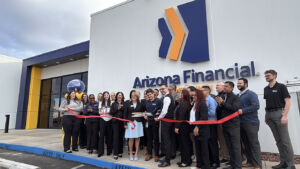2020 was a year for the history books. No one has any question that the year offered a completely different perspective on life to people all over the globe. When it comes to the American worker, a number of issues were exposed.
The University of Phoenix Career Institute recently released its first annual Career Optimism Index, which offers a comprehensive look at how the American worker has responded throughout 2020. Over 5,000 U.S. adults participated in the study to offer their perspective on barriers, solutions and perspectives from the impact of COVID-19 within the workplace.
According to the report from University of Phoenix, the pandemic had a lasting impact on the working American adult. After enduring a difficult year filled with stay-at-home orders and forced shutdowns, the report shows an interesting perspective on what many Americans are now focused on.
Financial Concerns
The Index found that 43 percent of Americans are currently living paycheck to paycheck. With regards to increased stress, the average American was worried about what COVID-19 might mean for their finances, causing the government to send out stimulus checks as a response. The pandemic challenges caused many Americans to reconsider their stance with regard to finances and spending. With new uncertainties facing the American worker, future plans were likely to include moves toward jobs with better pay.
Increased Stress
Without doubt, COVID-19 restrictions and changes created a great deal of stress. Most Americans cited that they felt stressed about money and their careers at some point in the past year. With so many unknowns, it is understandable that the stress rate has risen. Concerns about health, safety, job security and childcare are some of the top problems that caused the average American worker stress.
When stress is increased, job performance is often affected in a negative way. While short-term stress may offer a slight edge of benefit, long-term stress can lead to burnout, mistakes and reduced quality of output. If stress affects sleep, workers may struggle with sleep deprivation that can also impact their performance.
Boosted Optimism
Despite the challenges and fears of the past year, most American workers (70 percent) said that hope helped them get through the pandemic. Even more respondents (78 percent) reported that they felt hopeful about the future of their careers. While 42 percent said they did not see a clear path forward in their careers, 80 percent felt that they were “highly employable.”
Changed Perspective
One in three Americans reported that their career was knocked “off-course” because of the pandemic. This indicates that one third of Americans surveyed felt that they may need to rethink their careers and shift their paths in order to meet the changes brought about by the COVID-19 pandemic. This new perspective is filled with optimism but still faces a number of barriers.
“The pandemic has only exacerbated the career challenges of American workers – the increase of automation, the widening skills gap, financial insecurity, mental wellness and balancing parenting and home life – yet despite this, there is optimism,” said University of Phoenix President Peter Cohen. “At University of Phoenix, we’ve been dedicated to helping students and alumni achieve their career goals for the past four decades. We formed the University of Phoenix Career Institute to help solve broad, systemic issues for all American workers – and that starts with a greater understanding of what they are facing in the workplace. The Index has provided that insight.”
Boosted Confidence
With eight in 10 workers saying they felt highly employable and 78 percent clinging to hope, there is a sense of confidence and optimism that remains clear from the Index results. Without question, the American worker was shaken and challenged during the COVID-19 pandemic. But it would be incomplete to stop there. The American worker also rose to the challenge and demonstrated unquestionable resilience. The average worker was willing to change course if they found a new way to succeed. Part of the challenge was acquiring the resources needed to make that change.
For industry leaders and organizations, the message is clear. The pandemic did not destroy the spirit of the working American, but it did give workers a reason to begin questioning many things they once found comfortable and typical. American workers are looking forward with a bright outlook toward what they may be able to achieve in the future.
About the University of Phoenix
As the first fully online program for bachelor’s and master’s degrees, University of Phoenix has been helping American working adults shift their career paths since 1989. With more than 30 years of online educational leadership, University of Phoenix offers over 50 different undergraduate degree programs. The University of Phoenix Career Institute was developed to further address the systemic barriers facing working adults as they seek to enhance their careers.
Follow University of Phoenix on Youtube



